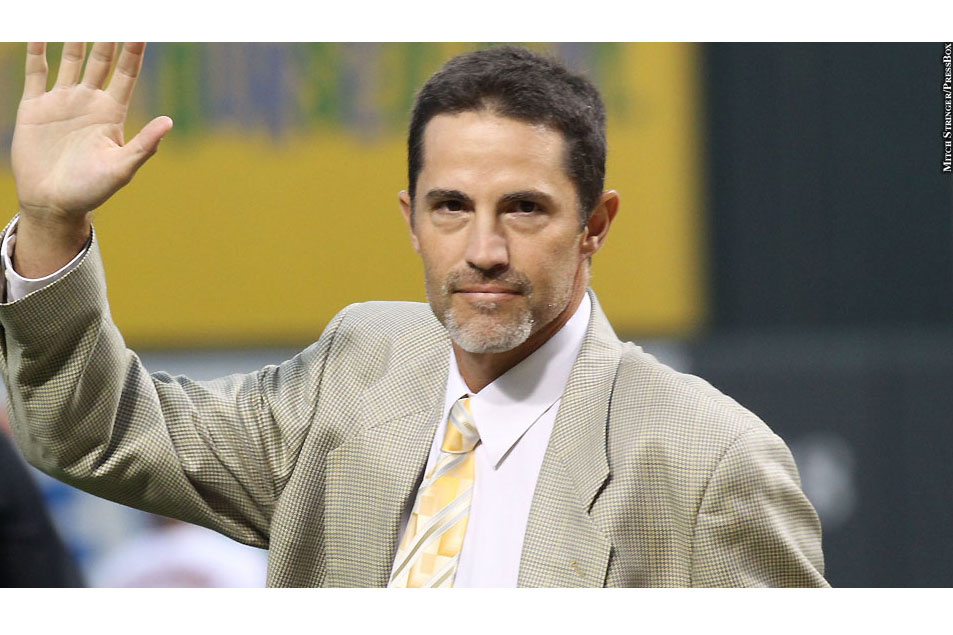It’s a rare feel-good story about the Baltimore Orioles – Mike Mussina finally gets into baseball’s Hall of Fame – even if the story’s about a guy who left here nearly two decades ago so he could pitch for somebody else.
At his best, Mussina was as good a pitcher as the Orioles ever had.
OK, calm yourselves down, folks, and understand that it’s no slander against Jim Palmer to make such a remark. Palmer was magnificent, and he was ours. Mussina was magnificent, too, and he was ours for a while.
And the record book backs up the comparison.
In 18 years, (a decade with the O’s) Mussina won 270 and lost 153. In 19 years, Palmer won 268 and lost 152. Pretty close, huh? Palmer’s earned run average was almost a run per game lower than Mussina’s, but Palmer competed mostly in an era when pitchers were dominating hitters. Mussina pitched during the steroid era, when hitters were muscling up artificially and the ball was taking flight.
Palmer was a constant in the Orioles’ greatest era, 1965 to 1983, when he was backed by Brooks and Frank Robinson, and Boog Powell and Mark Belanger, and then Eddie Murray and Cal Ripken Jr.
Mussina was a constant in an era of turbulence for the Orioles. Sometimes he had Ripken and Rafael Palmeiro and Roberto Alomar behind him, and sometimes he had people whose names have justifiably been forgotten.
But to watch either of these two pitch was to watch absolute Hall of Fame performers.
So how is it that it took the Baseball Writers of America only a year to vote Palmer into the Hall of Fame, and it took them six years to realize Mussina was worthy, too?
First, let’s remember the voters are a quirky collection. Across baseball history, there were those idiots who actually voted against Babe Ruth, against Ty Cobb, against Willie Mays. Joe DiMaggio didn’t get in for four years.
Who, in his right mind, could vote against these baseball gods? But, in the game’s entire history, nobody ever made it unanimously until the great Yankee relief pitcher Mariano Rivera did it this year.
But quirkiness aside, why so long for Mussina to get his due? Players need 75 percent of the vote to qualify for induction. In his first year of eligibility, Mussina only got 20 percent of the vote. Gradually, year after year, his numbers went up.
Why? In truth, the game’s not just about statistics, it’s about personality, too. In my life, I’ve never seen a better ballplayer than Willie Mays or a better hitter than Ted Williams. But they had writers vote against them.
And, frankly, some of those writers were voting against the man, and not the ballplayer. Williams was famously tyrannical with the baseball scribes. Mays could be a pill.
Mussina wasn’t easy, either. He wasn’t the most popular guy in the clubhouse here or in New York. Many of his teammates were high school grads. Mussina was never shy about reminding them he’d graduated from Stanford. Writers sometimes found him – well, let’s call it standoffish.
Still, better late than never. It’s a long time since Mussina pitched around here, and we remember him for some marvelous seasons on the mound. It’s good that the baseball writers got around to remembering it, too.
Also see:
Jim Palmer: Former Orioles RHP And Baseball Hall Of Famer Mike Mussina Was ‘Special Pitcher’ — PressBox
Former Orioles RHP Mike Mussina Elected To Baseball Hall Of Fame — PressBox
 A former Baltimore Sun columnist and WJZ-TV commentator, Michael Olesker is the author of six books. His most recent, “Front Stoops in the Fifties: Baltimore Legends Come of Age,” was reissued in paperback by the Johns Hopkins University Press.
A former Baltimore Sun columnist and WJZ-TV commentator, Michael Olesker is the author of six books. His most recent, “Front Stoops in the Fifties: Baltimore Legends Come of Age,” was reissued in paperback by the Johns Hopkins University Press.





